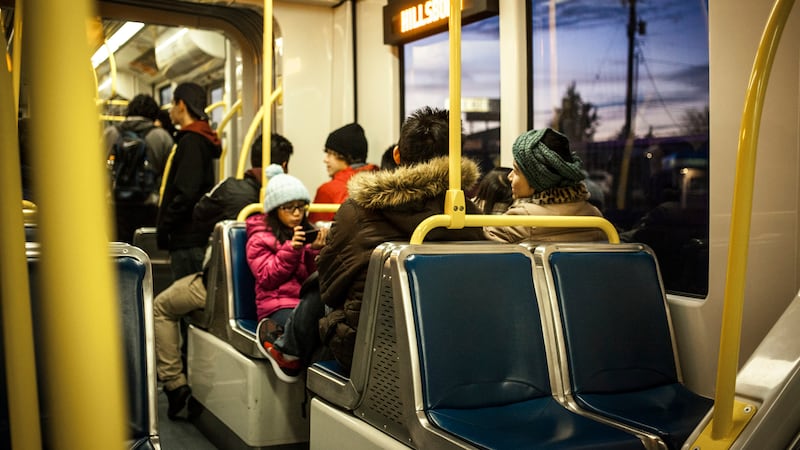It's one of the most notorious fines in Portland: a $175 penalty the first time you get caught failing to pay for a $2.50 MAX ticket.
That draconian punishment may soon be a relic of the past.
The regional transit agency TriMet todat proposed changes to its policy on fare evasion, potentially decreasing the cost to first-time offenders and offering community service as an alternative to paying a fine.
The policy change could be enacted as early as July 1, 2018. The new fee structure would charge first-time offenders $75. From there, the fees would increase to $100, $150 and $175 for each successive violation.
But the agency would also offer an alternative to the fees for people riding the bus or train without a valid fare. A person could take on community service instead, four hours for a first offense, seven for the second, 12 for a third and 15 hours for any additional offenses.
Because of a new law passed this year, TriMet can now handle fare evasion cases without sending people to court over a missing train ticket. The shift has given the agency freedom to reduce its fines and offer alternatives for low-income Portlanders.
Advocates who worked with the agency to craft a policy update say they're happy that the fees are tiered to make the impact less severe on first-time offenders—though they would have liked to see an even lower fee for people caught without a fare for the first time.
"People who evade fares are not necessarily criminals but people who cannot afford fares but still use the transit program because it is a lifeline," says Shawn Fleek, community engagement coordinator at OPAL Environmental Justice Oregon. "We want to reduce cost of transit service for the people who depend on it the most."
TriMet also proposed waiving citations for any individual who was eligible for the agency's Low Income Fare program or its Honored Citizen program, as long as the person enrolled in one of those programs and loaded a fare card with at least $10.
The TriMet Board of Directors still has to approve the changes at an upcoming board meeting.
